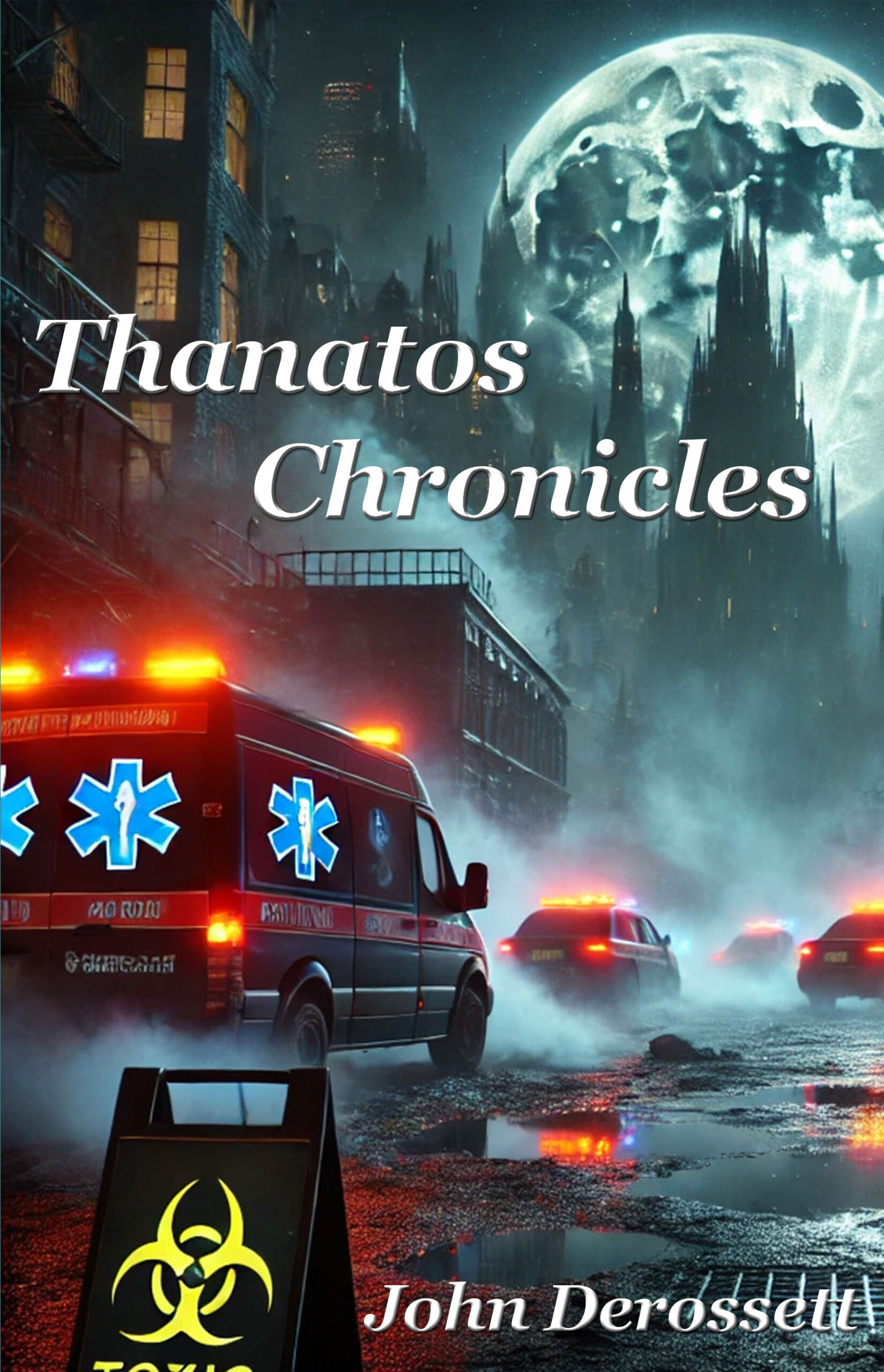
I wrote this story just after my dad passed away. I continue to miss him.
It was a typical autumn morning when Sarah’s phone rang. She glanced at the caller ID and saw it was the hospital. Her heart skipped a beat. The doctors had said her father’s condition was stable the night before, but something in her gut told her the news wouldn’t be good. She answered with a shaky, “Hello?”
The voice on the other end was calm, too calm. “Ms. Whitman, I’m sorry to inform you—your father passed away early this morning.”
The words hit Sarah like a tidal wave. Her father, David Whitman, wasn’t just a parent; he was her best friend, her anchor in a chaotic world. She had known this moment was coming, yet the shock made it impossible to breathe. Tears welled in her eyes as the weight of the loss sank in, cold and heavy.
Sarah sat on her father’s favorite armchair that night, wrapped in his old cardigan, inhaling the faint scent of him that still lingered in the fabric—woodsmoke and peppermint and Old Spice. The room was eerily quiet without his presence. Normally, he’d be in the corner, reading a novel or a newspaper, and if not one of those, then watching some old black-and-white movie.
She closed her eyes and let the memories flood in. She remembered how he had taught her to ride a bike in the park when she was eight. “It’s okay to fall,” he’d say. “Just don’t forget to get back up.” It had become a metaphor for life, one she leaned on during her hardest moments—until now.
It felt like she had fallen too hard this time, and she didn’t know if she could get back up. Grief twisted inside her, sharp and unrelenting.
The day of the funeral arrived, cold and gray. A light rain was falling. She had remembered something her father had told her one time when she was young, at a family members funeral. “When it rains at a funeral, that’s the Angels crying for the family’s grief,” he had said.
Friends, relatives, and neighbors filled the church, each person bringing their own memories of David. As Sarah sat in the front row, staring at the polished oak coffin, she felt a numbness creep over her. This was the final goodbye, the moment when the reality of his absence became painfully real.
When it was her turn to speak, Sarah stood at the podium, her legs trembling beneath her. She looked out at the faces in the crowd and felt a lump in her throat. Taking a deep breath, she began.
“My dad was the kind of person who made the world brighter,” she said, her voice cracking. “He didn’t have to do anything extraordinary—he just had this way of making you feel seen, like you mattered.”
She paused to collect herself. “He taught me the small things were what mattered most—Sunday breakfasts, road trips to nowhere, the way he always knew when I needed a hug, even if I didn’t ask.”
Her voice broke completely as she said the last part. “I’m going to miss him every day of my life.” She stepped down from the podium, barely able to hold back the tears.
After the funeral, Sarah went back to the empty house. It was the first time she had ever experienced true loneliness—the kind that gnaws at your soul. She wandered from room to room, each one filled with fragments of her father’s life: his collection of vinyl records, his dog-eared books, the plants he tended so carefully. Every corner of the house seemed to whisper, *He was here.*
That night, Sarah lay in bed, staring at the ceiling. Sleep didn’t come easily. Her mind raced with questions—Why now? Why him? What was she supposed to do without him? Grief didn’t feel linear. It came in waves, unpredictable and overwhelming. She cried until there were no tears left, only an aching emptiness in her chest.
In the following days, Sarah noticed something unsettling: the world continued as if nothing had happened. The sun rose and set, people went about their lives, and the mail still arrived every morning. It felt surreal to her—how could the universe be so indifferent to her loss? It was as if her father’s death had left a crater in her heart, but no one else could see it.
She struggled to engage in ordinary conversations with friends. They would ask how she was holding up, and she’d say, “I’m fine,” because what else could she say? There were no words to describe the ache that gnawed at her, the way memories crept in at the most unexpected times, turning her world upside down.
A week after the funeral, Sarah finally found the courage to sort through her father’s things. She opened drawers and closets, discovering artifacts from his life: old postcards, movie ticket stubs, and letters he had written but never sent. Each object told a story, and each one brought her to tears.
In his bedside drawer, she found a small notebook filled with his handwriting. She recognized it as the journal he always kept. Flipping through the pages, she found entries about her—memories of their conversations, notes about her achievements, and expressions of quiet pride.
*April 12: Sarah called today. She’s doing well at work, though she’s too modest to admit it. I’m so proud of her. I hope she knows that.*
Reading his words, Sarah felt a strange combination of sadness and warmth. Even in his absence, her father was still with her, offering love and encouragement from beyond the grave.
In the weeks that followed, Sarah’s grief began to affect her daily life. She found it hard to focus at work, her mind drifting constantly to thoughts of her father. She avoided social gatherings, preferring the solitude of her home. Every task, no matter how small, felt overwhelming—making coffee, folding laundry, or even taking out the trash.
Friends tried to reach out, but Sarah found it difficult to engage. She felt like a ghost in her own life, disconnected from everything and everyone. The world no longer felt familiar; it was as if she had been transported to an alien landscape, one where nothing made sense without her father in it.
One evening, after a particularly difficult day, Sarah decided to attend a grief support group. She wasn’t sure what to expect, but she knew she couldn’t keep drowning in her sorrow.
At the meeting, she listened to others share their stories of loss—some had lost spouses, others parents or children. For the first time since her father’s death, Sarah felt a flicker of connection. She wasn’t alone in her grief. There were others navigating the same dark waters, each struggling to find their way to shore.
When it was her turn to speak, Sarah hesitated, then said, “I lost my dad a few weeks ago. He was my best friend, and I… I don’t know how to live without him.”
The room was silent, filled with the weight of understanding. And in that silence, Sarah felt a small, yet significant, sense of relief. It was okay to feel lost. It was okay not to have all the answers.
As the months went by, Sarah began to learn how to carry her grief without being consumed by it. She realized that grief wasn’t something you got over—it was something you learned to live with, like a scar that never fully healed. But in time, the pain became less sharp, less overwhelming.
She started going back to work, reconnecting with friends, and even found moments of joy in the simplest things—a warm cup of tea, a good book, a walk in the park. These moments didn’t erase the loss, but they reminded her that life, despite everything, was still worth living.
One morning, months after her father’s passing, Sarah went to the park where they used to walk together. She sat on a bench, staring at the autumn leaves falling gently to the ground.
She whispered into the breeze, “I miss you, Dad. But I’ll be okay.”
And in that moment, she felt a strange but comforting sense of peace. It was as if her father’s spirit was with her, reassuring her that she would find her way, just as he always knew she would.
As she stood to leave, Sarah realized that saying goodbye didn’t mean forgetting. It meant carrying the love and memories with her, wherever life took her. And with that, she walked away, ready to face the world again—one step at a time.





